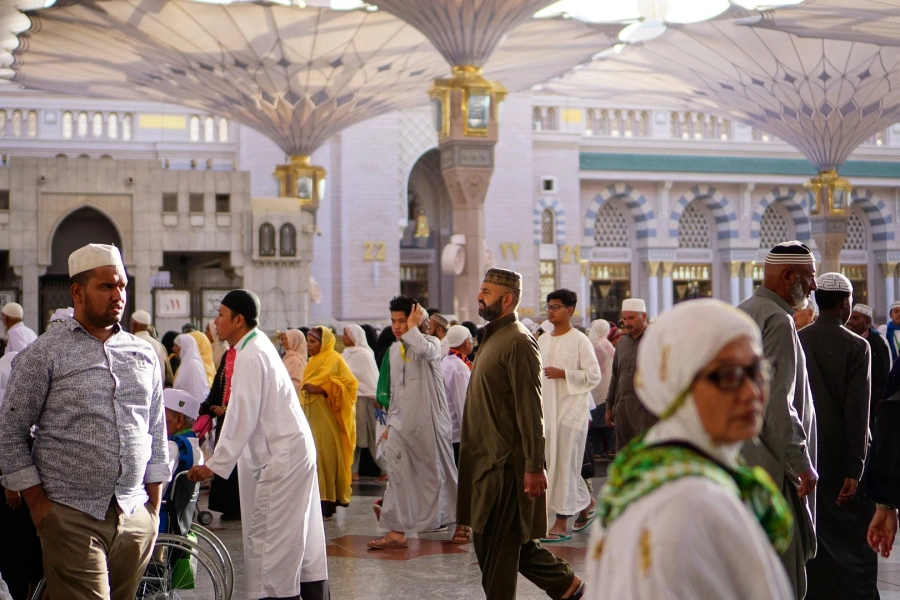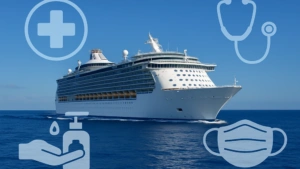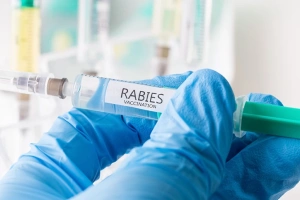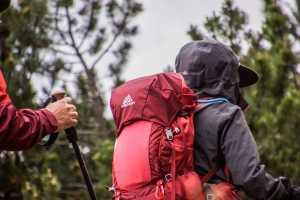Preparation for the Hajj or Umrah is vital for a safe and enjoyable pilgrimage. Masta’s top travel tips for a safe and healthy pilgrimage
1. Book a pre travel health consultation to discuss required vaccinations.
Meningitis ACWY
All pilgrims must have had a quadrivalent (ACWY) meningococcal vaccine -received no less than 10 days before arrival in country.
The Meningitis vaccine will come with a certificate that is required for entry. It will state the name and type of vaccine used. You must travel with this document as it will be asked for on arrival. It is good practice to take a copy of this in case it is lost or damaged.
All Masta clinics can provide the Meningitis ACWY Vaccine and certificate.
Covid Vaccine
This year, all travellers over 65 years old or with the following conditions must travel with proof of Covid-19 vaccination:
- Pregnant women
- Chronic heart diseases, Chronic respiratory diseases, Chronic kidney failure
- Hereditary blood disorders (sickle cell anaemia, thalassemia)
- Congenital or drug-induced immunodeficiency, cancer
- Chronic neurological diseases
Make sure all routine travel vaccinations are up to date. These include:
- Tetanus, Diphtheria, and polio
- Measles, mumps and rubella (MMR)
- It is sensible to also consider the flu vaccine and covid 19 vaccine
Vaccines to consider:
- Other vaccines such as Hepatitis A, Hepatitis B and Rabies may be advised based on your itinerary and other planned activities.
2. See your GP for health check up
If you have any pre-existing medical conditions, it is important to visit your GP prior to travel to ensure that you are fit to travel. Pilgrims travelling with chronic diseases are advised to carry documentation of their health condition, along with ample supply of their prescribed medication.
3. Keep yourself physically fit
Hajj/Umrah can be physically demanding. It involves lot of walking and performing daily rituals in hot weather. It is important to keep physically active and improve physical fitness before departure where possible.
4. Travellers’ diarrhoea – prevention and management
Diarrhoea is not common during Hajj/Umrah. To reduce the risk of diarrhoea and dehydration you should avoid uncooked meats, raw fruits and salads. Drink plenty of bottled or boiled water. Avoid ice in drinks. It is important to maintain good hand hygiene after using the toilet and before handling food. Carry a hand sanitiser. Avoid sharing bottles and cups and use your own cup to drink Zam Zam water in the Haram. You should always ensure you have plenty of Diarrhoea relief medication that includes loperamide and rehydration sachets.
5. Travel with a medical kits
It is important to travel with a medical kit. This should be with you at all times. Minor injuries and illnesses do happen and you should be prepared to manage these. The medical kit should include pain killers, dressings and plasters, antiseptic, antifungal cream, medication to manage diarrhoea, antihistamines and insect repellant.
6. Reduce your risk and prevent viral infections
Influenza and Covid -19 viruses are easily transmitted in crowded conditions from sneezing and coughing, You can reduce your risk by receiving vaccination, wearing a face mask and practising good hand hygiene.
Middle East respiratory syndrome coronavirus (MERS-CoV) is another virus that is spread from animals to humans that can cause severe illness and death. Avoid contact with camels, avoid raw milk and raw camel milk and avoid eating camel meat. Symptoms of infection include fever, cough and breathing difficulties. Always seek medical attention.
7. Protect yourself from the sun
The high temperatures in Saudi Arabia during the day can put you at serious risk of dehydration, heat exhaustion, heatstroke and sunburn. Take frequent rest breaks, seek shade and drink plenty of water to stay hydrated. Wear a high factor sun cream an re apply frequently to prevent sunburn. Use an umbrella to protect you from the sun and provide shade and try to perform some rituals in the evening to avoid the intense daytime sun.
8. Protect yourself from Mosquito bites
It is important to protect yourself from mosquito bites as much as possible by wearing long loose light-coloured clothing, applying insect repellent on exposed skin over the top of sun cream. When indoors consider sleeping under a mosquito net if air conditioning and sealed windows are not present. plug in repellents can be useful in hotels. Dengue virus is spread by mosquitoes and is a risk in Mecca. This infection can be cause flu like symptoms and health complications.
9. Foot Health
During Hajj and Umrah you will be walking long distances and standing for long periods. Injuries and infections to the feet such as blisters and fungal infections are not uncommon. It is important to wear comfortable and well fitted walking shoes and keep feet clean and dry. Treat any injuries or infections. Beware of walking barefoot on hot marble and sand as this may burn the feet.
10. Accidents and Staying safe
During Hajj/Umrah, you may have to walk close to or through traffic and busy roads. Pushing in large crowds around the stoning rites and other activities can cause people to fall and become crushed or trampled on. Avoid overcrowded areas and ensure that you have adequate travel health insurance.
Men who wish to shave their heads during Hajj should always take their own razor for personal use and visit licenced and officially designated barbers. Hepatitis B and HIV are a risk and can be transmitted through the use of unclean blades.
11. Keep personal possessions safe
Take care with personal possessions. Never leave luggage unattended. Always clearly label your luggage showing your name, password number, flight number, hotel name, and contact phone number.
12. On return home
If you feel unwell on return from hajj/umrah and are experiencing symptoms including fever, cough and/or shortness of breath it is important to seek medical attention and mention your travel history.
Resources
https://travelhealthpro.org.uk/pdfs/generate/factsheets.php?new=19





